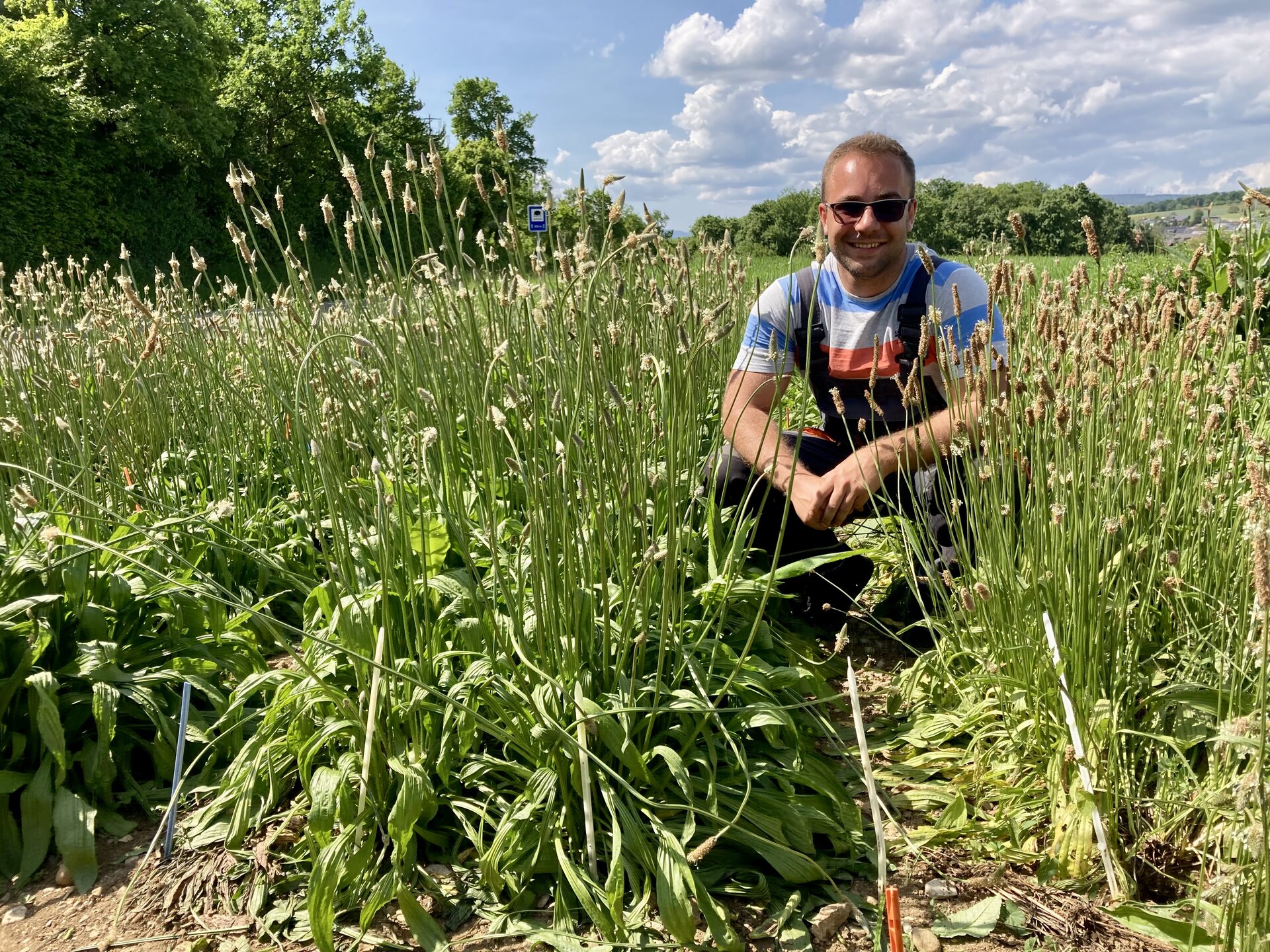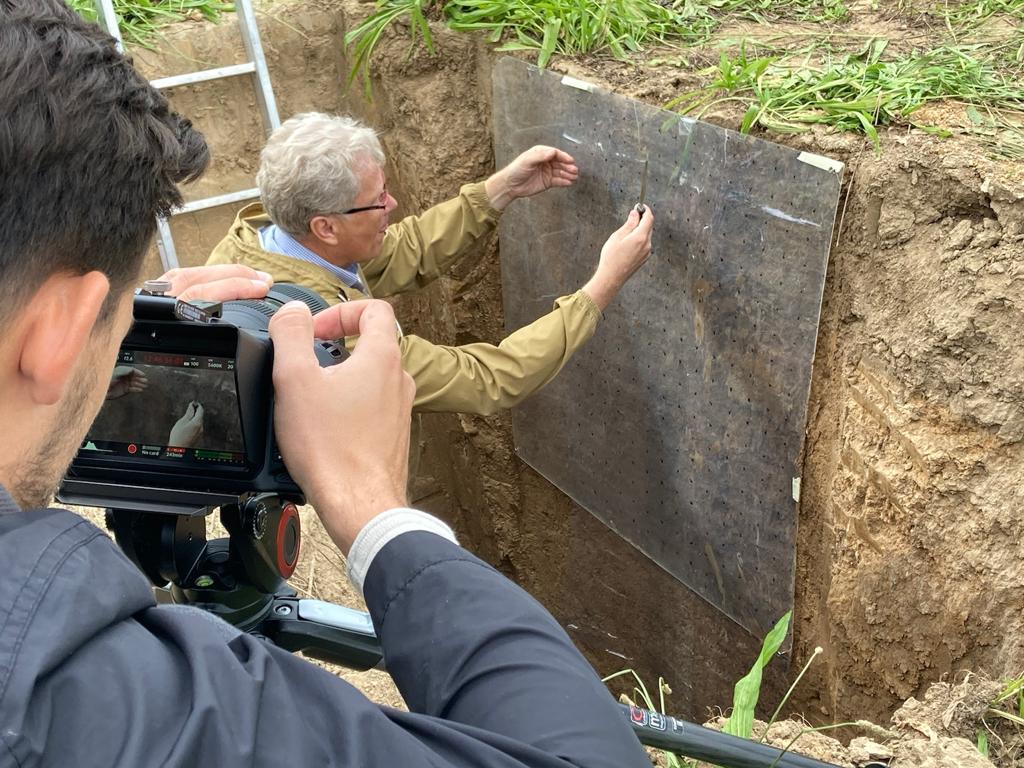Michał Pol is a PhD student in the agriculture and horticulture discipline. His research internship started before applying to the Doctoral School, thanks to his current supervisor, D.Sc. Sylwia Lewandowska, in order to get acquainted with the topic of his doctoral dissertation. Professor Knut Schmidtke, who is the Director of the Research Institute of Organic Agriculture FiBL (FiBL - Forschungsinstitut für Biologischen Landbau) was looking for someone interested in the work on Plantago lanceolata.
– I started my internship at the Institute on 04/01/2021, in the meantime, the idea of submitting an application to the Doctoral School was born, and Professor Schmidtke also agreed to become my second supervisor. After graduating from the Wroclaw University of Environmental and Life Sciences I wanted to continue research in the field of my interest, looking for an unusual topic/research object - and I managed, have any of you heard that Plantago lanceolata can be used in agriculture as a plant that can help to inhibit the nitrification process in soil? – says the doctoral student.

In his study, Michał attempts to compare the impact of genotypes of European and New Zealand origin on the nitrification process in soil, and the key properties responsible for this effect, such as the content of aucubin (iridoid glycoside) in plant roots and shoots, the length and density of root systems, and yielding capacity. Laboratory and field experiments carried out as part of Michał’s doctoral dissertation should ultimately contribute to broadening the knowledge on the influence of ribwort plantain on soil nitrogen inhibition and reduction of N2O emissions to the atmosphere.
– The obtained results of the analyzes will allow us to select the best genotype of Plantago lanceolata for European conditions, and answer the question of whether it can be used as a "tool" to reduce nitrogen losses in agriculture in the conditions of Central Europe – Michał explains.

Michał plans to finish the work within his research and development internship at the FiBL on 09/30/2023. Thanks to specialized research facilities, the young scientist has the opportunity to conduct field and laboratory experiments in close cooperation with the University of Basel (Switzerland) and the University of Applied Sciences in Dresden (HTW Dresden). The subject of the research was also interesting for the "Coop" company (the largest retail and wholesale company in Switzerland), so they decided to support the project financially (the subsidy is to take place in March 2023 and is to amount to 300,000 CHF).
– During my stay, the Board of the Institute was also contacted by a person from Poland with financial resources and willingness to finance the first FiBL Institute of Organic Agriculture in Poland. I am also involved in this project together with my supervisors. The project has already started. This is a very big step forward for the organic farming sector in Poland – admits the scientist.
Michał is thankful to all professors involved in the education in the Doctoral School and looks forward to popularizing and continuing research in the field of organic farming after obtaining a PhD degree.